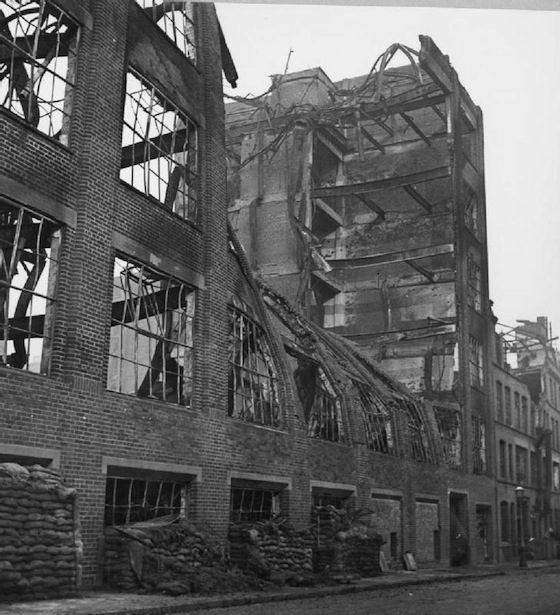A De Montfort University Leicester (DMU) academic is featuring in a new BBC series on life in wartime Britain.

Blitz Cities is being shown on BBC 1 tomorrow (Friday 11 September) as part of a series looking at life in cities targeted by the Luftwaffe to mark the 75th anniversary of the start of the Blitz.
DMU’s Matt Taylor, of the International Centre for Sports History and Culture, talks to presenter, Homeland actor David Harewood, about the impact the Second World War had on sport – especially football.
Professor Taylor said: “What happened to football was what happened to lots of entertainment, initially everything was stopped. There was a real fear of air attacks, especially that football grounds would be a target because of the huge crowds of people at the games but at the same time, they did not want to cut off a key part of the cultural oxygen for many people.
“In Birmingham, the St Andrews ground was in the city and surrounded by munitions factories and the like, so Birmingham City’s ground was absolutely a target. The team continued to play, but not at the ground and in fact played at lots of different grounds, including at the home of their main rivals, Aston Villa.”
Prof Taylor is working on a new book, Sport and the Home Front: Wartime Britain at Play, 1935-1945, which involves research in the National Archives into Government thinking at the time as well as case studies of local sports teams during the war.
“I’m looking at a number of key themes – such as class, gender, national identity. Conventional wisdom is that everyone had this sense of working together for a common goal, and what’s interesting is how sport sometimes went against that – people would ask whether the Government should be providing much-needed petrol, for people to go and watch dogs running around a track, for example.
“I also want to look at bowls, table tennis, cycling clubs – how did they survive? I want to find out what happened to the clubs and whether people found it helpful to keep hold of something of their pre-war life by continuing to be members.”
Posted on Thursday 10 September 2015